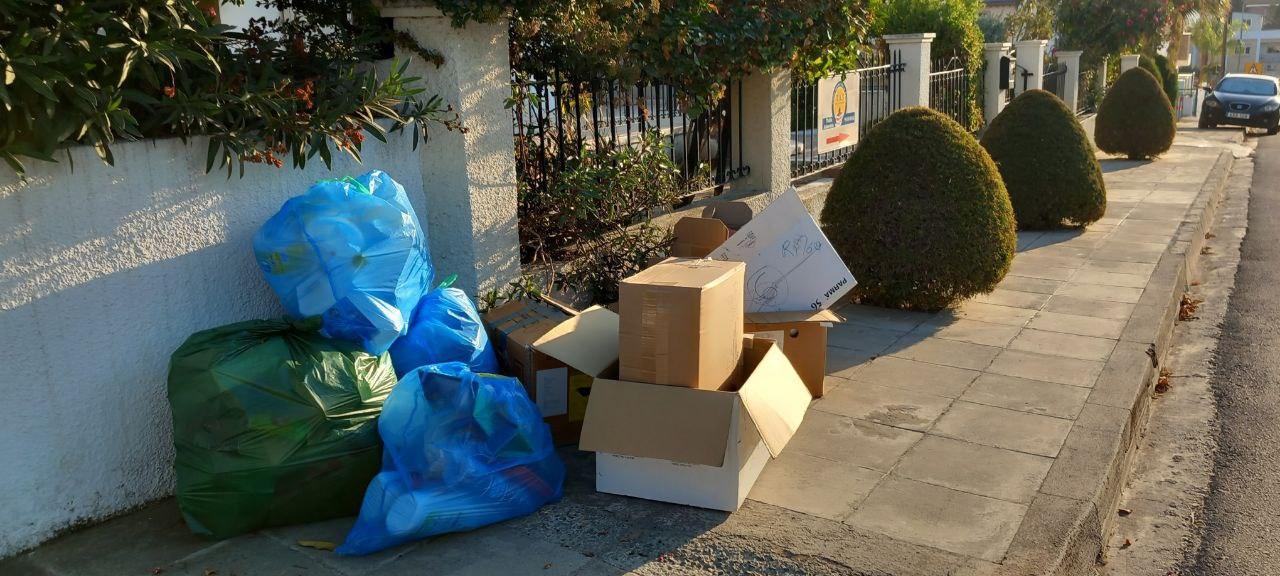Cyprus, the sunny island in the heart of the Mediterranean, is renowned for its endless beaches, azure waters and rich culture. But like any other place, it faces the challenges of the modern world. One of these challenges is waste management. In recent years, Cyprus has taken major steps to deal with the growing amount of waste by introducing sorting and recycling systems. Let's take a look behind the scenes and find out how the island of Aphrodite is fighting for its green credentials.
Waste management system in Cyprus
Cyprus' waste management system is based on the European Waste Directive, which requires that the amount of waste sent to landfill be minimised and that the recycling and reuse of materials be maximised. This process starts with the most important step - sorting waste.
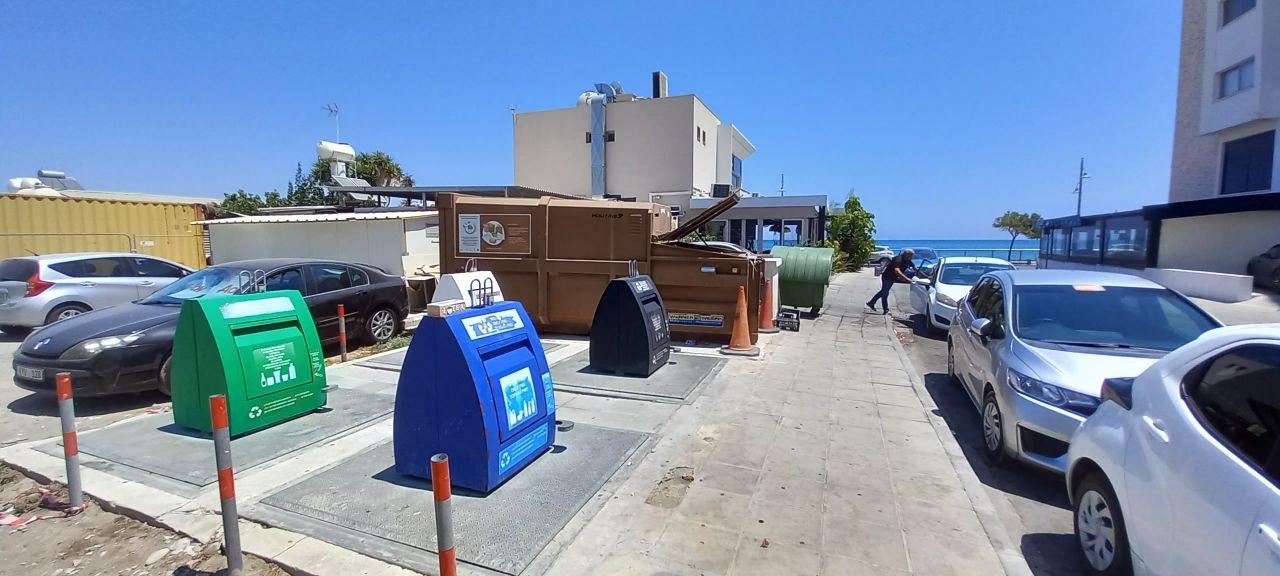
Sorting waste
Waste sorting in Cyprus takes place at several levels. Almost every home, office and public place has bins for the separate collection of different types of waste.
Paper and cardboard
This is one of the main categories. Residents place newspapers, magazines, cardboard and office paper in special brown bins. The paper is sent to recycling plants where it is cleaned and made into new products such as packaging or toilet paper.
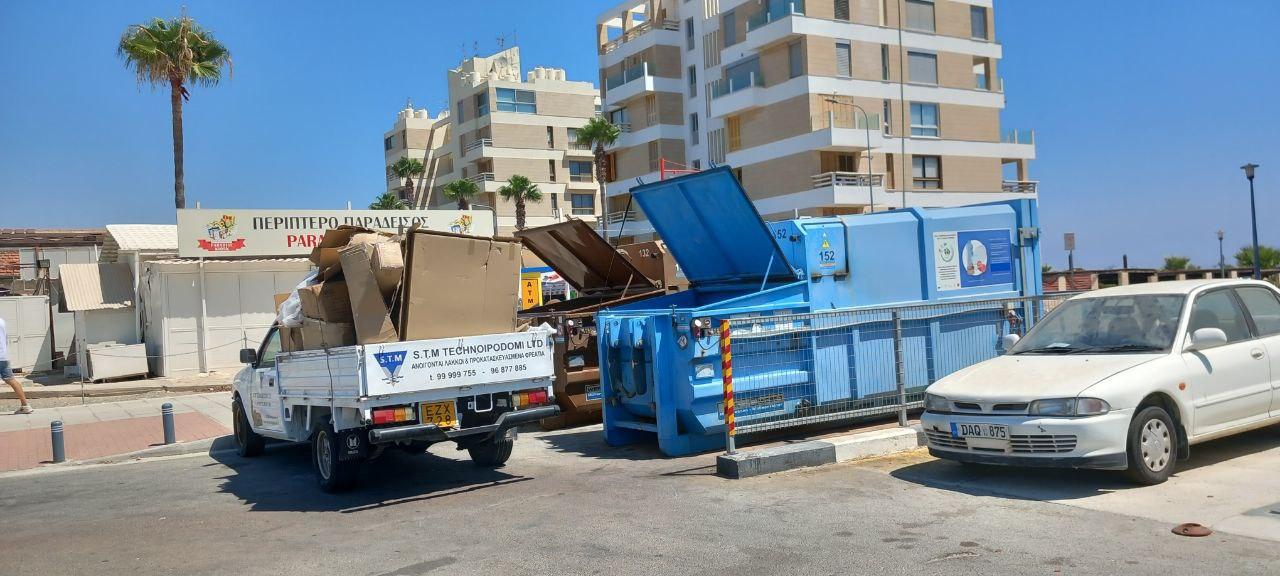
As with the other categories of sorting bins, they can vary in scale but are in a coffee colour scheme.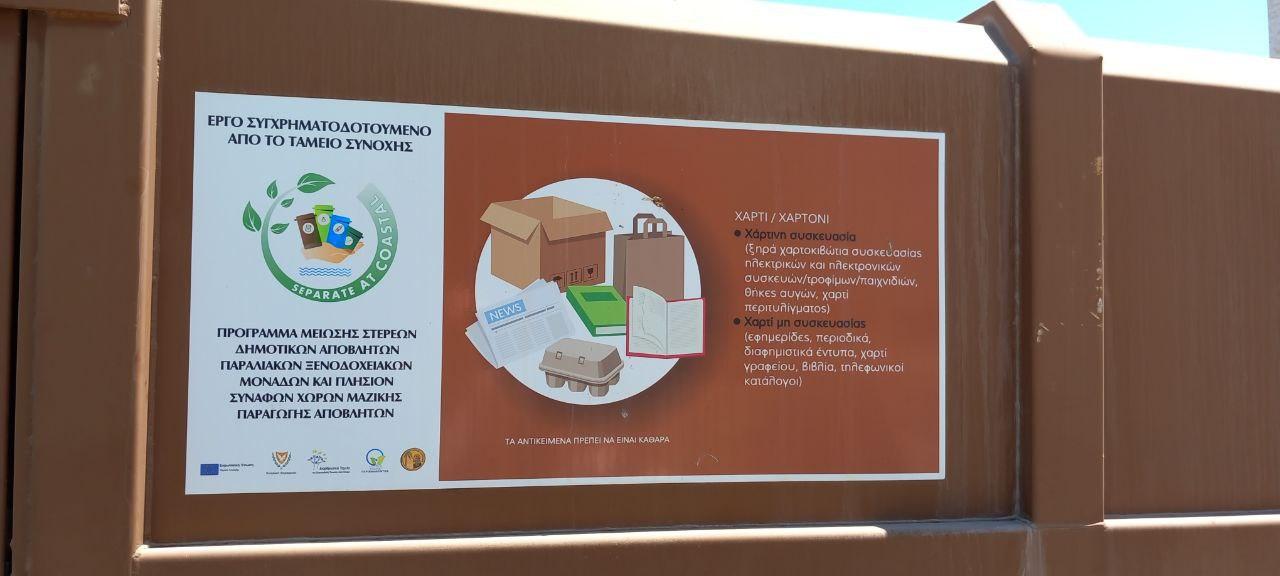
The largest bins are made of paper. Good and containers can be found so that the box from the nearest Ikea shelf will fit in full size. For more miniature brown paper containers, you'll have to shred the boxes a bit.
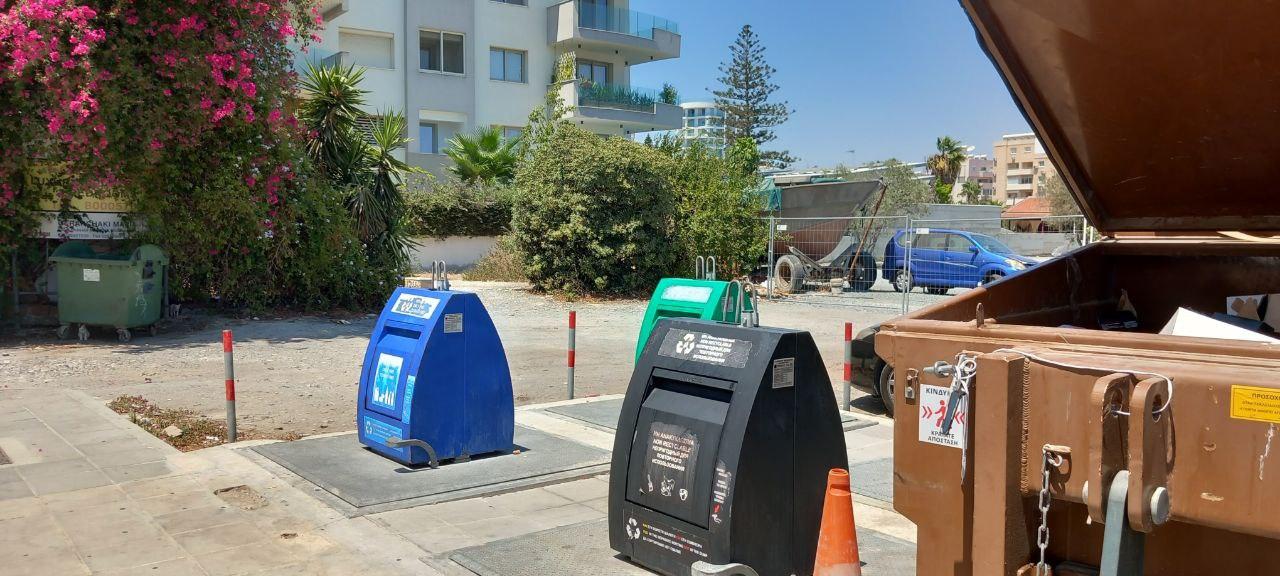
Glass
Glass bottles and jars are collected separately. This is not just a convenience, but a necessity, as glass can be recycled infinitely many times without loss of quality. Once collected, the glass is washed, crushed and re-melted into new products. These containers are not yet available everywhere and certainly not in every household. So you can collect the glass yourself and take it out at your leisure.
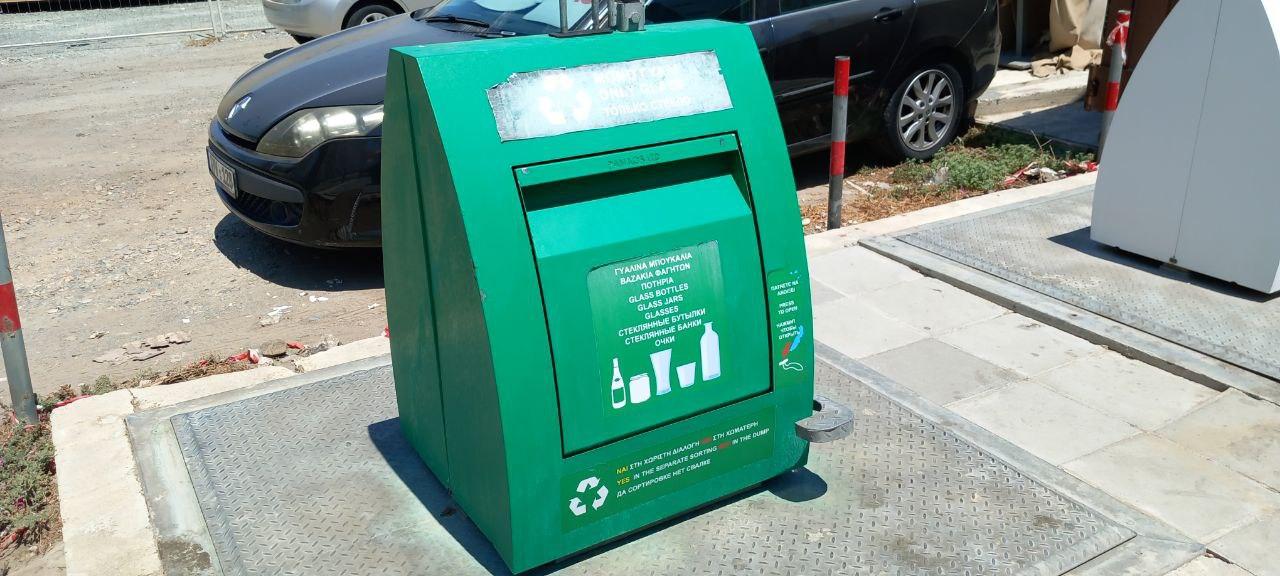
Plastic, aluminium, Tetra Pak packaging and tin cans
Plastic bottles, packaging and metal cans are also sorted separately. Plastic and metal are sent to recycling centres where they go through complex cleaning and recycling processes to become raw materials for new products. We use blue bins for PMD waste.
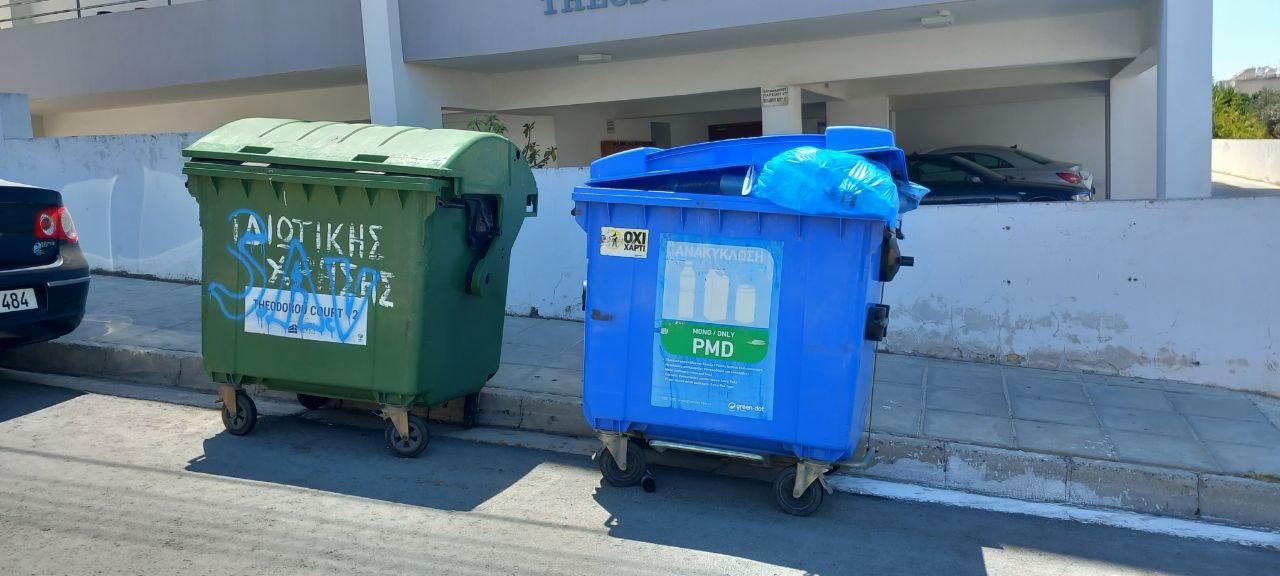
Organic waste
Some areas of Cyprus have started to collect organic waste such as food waste and garden waste. This waste is composted and becomes a valuable fertiliser for agriculture.
Sorting in Cyprus can be very simple and straightforward, as in the photo above. Or it can be based solely on the imagination of private homeowners due to a lack of colourful bins, as in the photo below. The only thing to bear in mind is that sorted rubbish is collected on certain days. Tuesdays, for example. So there is no need to put all that beauty out on the street on Wednesday morning. 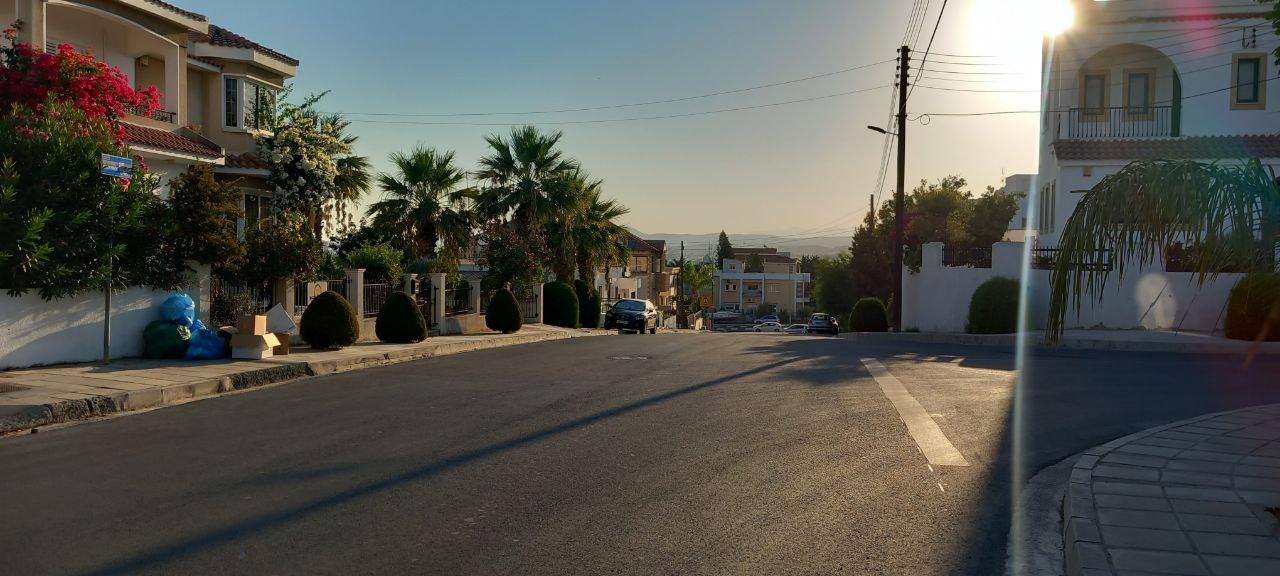
Waste recycling
There are several recycling centres in Cyprus where different types of waste are transformed into new materials and products:
- Paper Recycling Centres. All sorted paper is received, cleaned, shredded and recycled into new paper products. This process reduces deforestation as well as water and energy consumption.
- Plastic recycling. Plastic waste goes through several stages: it is washed, sorted by type of plastic, shredded and made into pellets. These pellets are then used to make new plastic products such as bottles, toys and building materials.
- Glass recycling. Waste glass is crushed into small particles and remelted at high temperatures to make new glass. This process not only conserves resources but also reduces the carbon emissions associated with making new glass.
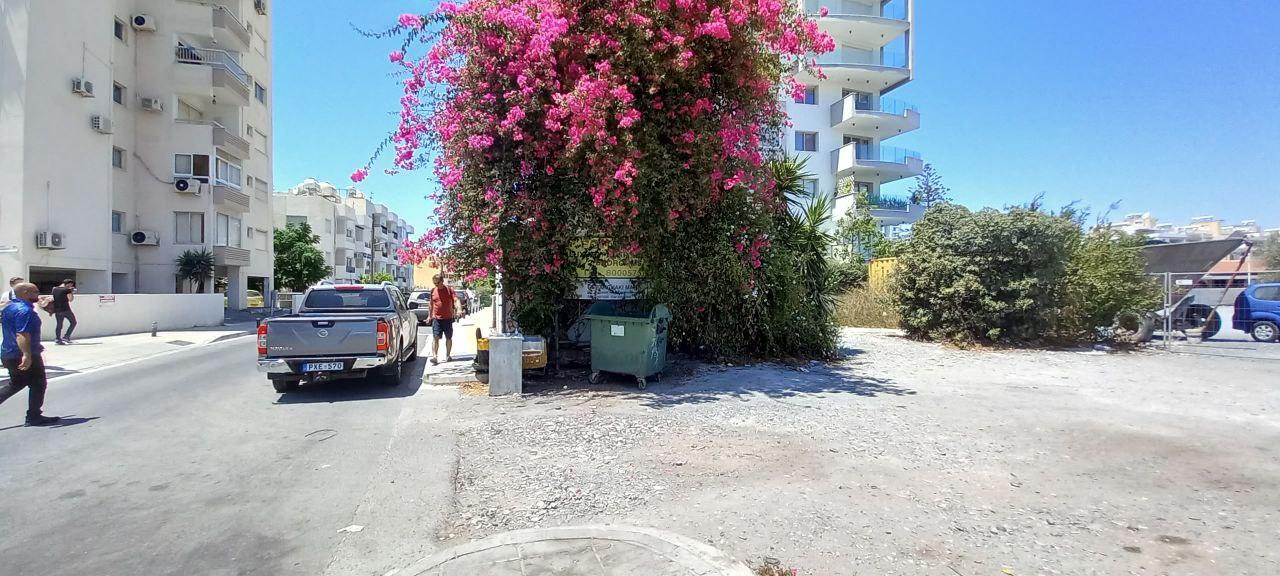
Initiatives and programmes
Cyprus has many initiatives and programmes aimed at improving waste management:
- The Green Dots Programme. This programme is a network of special containers for separate waste collection installed throughout the country. Residents can take their sorted waste to the nearest Green Dot free of charge. This reduces the amount of waste going to landfill and increases the amount of recyclable materials. You can find your nearest Green Dot on the programme's website and download stickers for sorting bags.
- Educational campaigns. One of the keys to successful waste management is public education. Educational campaigns are organised in schools, universities and public places to raise awareness of the importance of sorting and recycling waste. Lectures, seminars and interactive activities are organised to help people understand how to sort waste properly and why it is important for the environment.
- Recycling incentives. In some areas of Cyprus, there are recycling incentive schemes that offer rewards for bringing in certain types of waste, such as plastic bottles or aluminium cans. These incentives can be in the form of small cash rewards or discounts on utility bills, which motivate people to become more active in separate waste collection.
List of European environmental programmes in which Cyprus participates
European Territorial Cooperation (ETC) - Interreg. The European Territorial Cooperation (ETC) programme, known as Interreg, aims to promote the economic, social and territorial development of the EU Member States. The main objectives of the programme include strengthening competitiveness, efficient use of energy and risk-averse environmental protection.
RETHINK - Reduce, Reuse, Recycle to reduce, reuse and recycle waste in Cyprus. The RETHINK campaign aims to raise public awareness of the need to reduce, reuse and recycle waste in Cyprus. The project, which ended in August 2017, included a comprehensive communication strategy and was partially funded by the EU Life+ programme.
Plan to replace low productivity jobs with high productivity jobs. Green Dot Cyprus participated in the Plan to Replace Low Productivity Jobs with High Productivity Jobs project, which was funded by the European Regional Development Fund and other EU funds. The main objectives included the development of a customer relationship management system and the improvement of agency processes.
Environmental Policy Support Tool for Recycling in Islands. Launched in 2009, the Environmental Policy Support Tool for Recycling in Islands programme examined the specificities and challenges of recycling in islands such as Cyprus and Malta. The programme developed a tool to assess the economic value and environmental benefits of different waste management systems, which facilitated decision-making on the implementation of recycling projects on islands.
Problems and challenges
Despite its efforts, Cyprus faces a number of challenges in the area of waste management:
- Low public awareness. Not all residents are aware of the importance of separate waste collection and recycling. As a result, a significant amount of waste ends up in landfills without being recycled. Additional educational programmes and campaigns are needed to raise awareness and change behaviour.
- Limited infrastructure. In some parts of the island there is a lack of separate collection containers and recycling facilities. This creates difficulties for residents and makes it difficult to manage waste effectively. The construction of new recycling facilities and the installation of additional containers could significantly improve the situation.
- Organic waste disposal problems. The introduction of composting systems is just beginning and much organic waste is still being landfilled. There is a need to expand composting programmes and develop infrastructure for the efficient disposal of organic waste in order to reduce its negative impact on the environment.
Waste sorting and recycling in Cyprus is an important and complex process that requires cooperation between the government, the private sector and the public. The country is taking significant steps to improve its waste management system by introducing modern technologies and programmes. However, to achieve long-term success, additional efforts are needed to raise public awareness, expand infrastructure and develop new initiatives. Every step forward brings Cyprus closer to a sustainable and environmentally friendly future.
The fight for a clean island is not only the responsibility of the authorities, but also the personal responsibility of every Cypriot resident and visitor. After all, it is only through joint efforts that this beautiful corner of nature can be preserved for future generations.
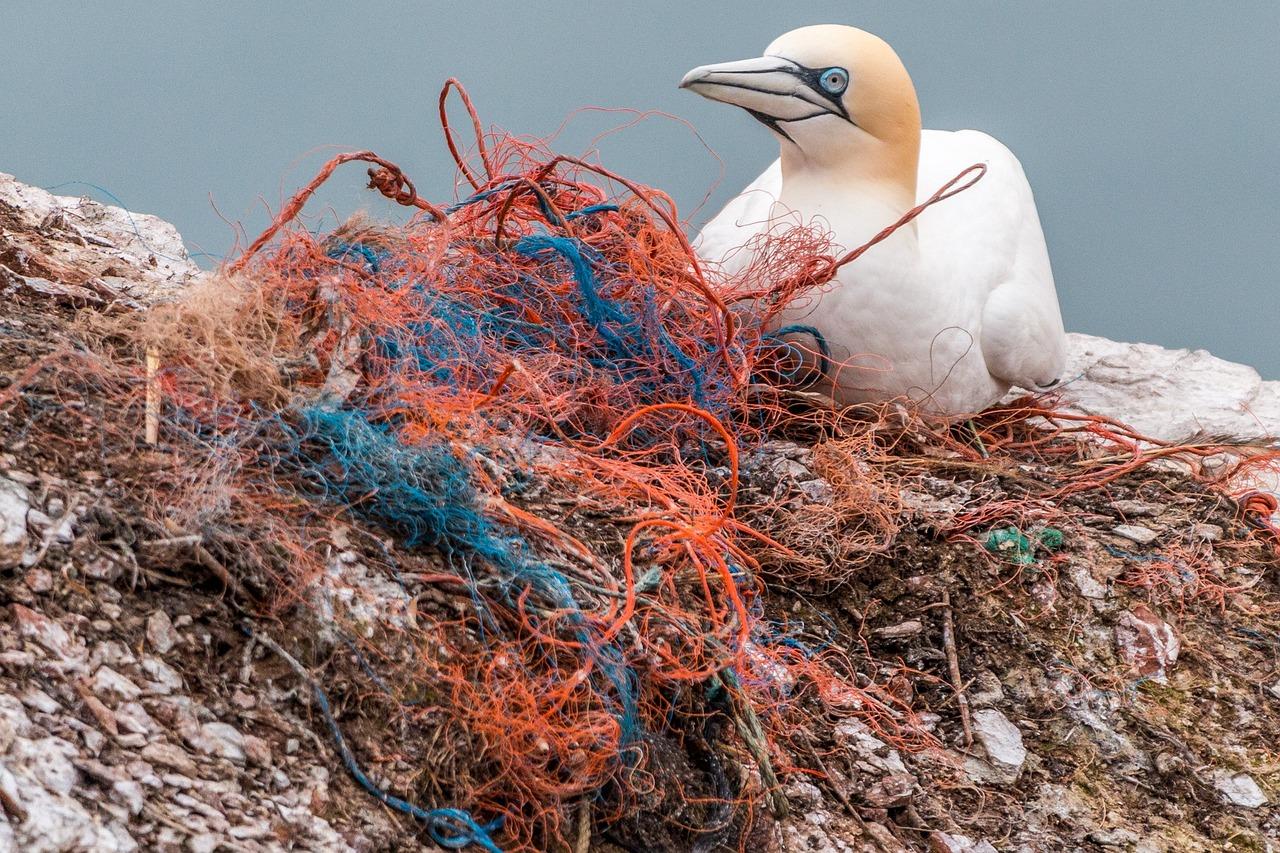
Read also:

